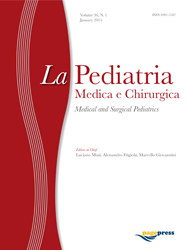Effectiveness of web-based play therapy intervention in supporting the development of children with attention deficit/hyperactivity disorder

All claims expressed in this article are solely those of the authors and do not necessarily represent those of their affiliated organizations, or those of the publisher, the editors and the reviewers. Any product that may be evaluated in this article or claim that may be made by its manufacturer is not guaranteed or endorsed by the publisher.
Authors
The high prevalence of children with Attention Deficit/ Hyperactivity Disorder (ADHD) in Indonesia has become a concern for nursing because ADHD might emerge as neurological developmental problems if not treated early through appropriate intervention. This study aims to determine the effectiveness of web-based play therapy on the emotional, behavioural and social development of school-age children with ADHD. This study employs a quasi-experimental non-equivalent control group design with purposive sampling technique, and 126 children with ADHD (patients at a psychiatric hospital in Indonesia) as participants. The results show that play therapy is an effective intervention for the emotional, behavioural and social development of school-age children with ADHD (p = 0.048, p = 0.030, p = 0.030; α= 0.05). This study is recommended as a reference for optimising nursing care for children with ADHD using information technology in the form of web-based play therapy designed in line with the fundamentals of intervention for children with ADHD, using attractive features and flexible access.
How to Cite

This work is licensed under a Creative Commons Attribution-NonCommercial 4.0 International License.
PAGEPress has chosen to apply the Creative Commons Attribution NonCommercial 4.0 International License (CC BY-NC 4.0) to all manuscripts to be published.






